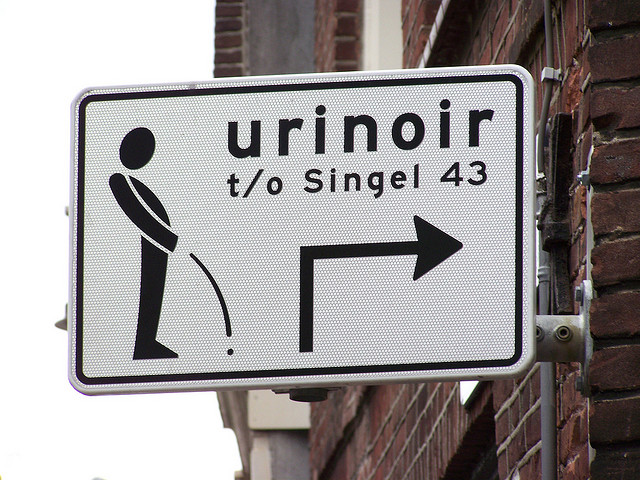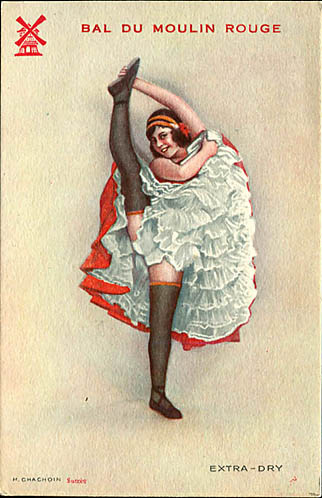
The photo above, taken in Amsterdam, is courtesy of K@a.
I’m going to start taking Spanish and / or German classes at the community college soon. Spanish, because it’s a useful language to know and German, because although it’s not useful, I spent 10 years and thousands of dollars studying it, so I might as well try to regain what I’ve lost (it’s been seven years since I lived in Germany). So in preparation for what is sure to be a painful process, I dug up some quotes about the good, the bad and the ugly of foreign language acquisition. Enjoy!
1. “I’d hoped the language might come on its own, the way it comes to babies, but people don’t talk to foreigners the way they talk to babies. They don’t hypnotize you with bright objects and repeat the same words over and over, handing out little treats when you finally say “potty” or “wawa.” It got to the point where I’d see a baby in the bakery or grocery store and instinctively ball up my fists, jealous over how easy he had it. I wanted to lie in a French crib and start from scratch, learning the language from the ground floor up. I wanted to be a baby, but instead, I was an adult who talked like one, a spooky man-child demanding more than his fair share of attention.

Rather than admit defeat, I decided to change my goals. I told myself that I’d never really cared about learning the language. My main priority was to get the house in shape. The verbs would come in due time, but until then I needed a comfortable place to hide. ”
― David Sedaris
2. “What’s the trick to remembering that a sandwich is masculine? What qualities does it share with anyone in possession of a penis? I’ll tell myself that a sandwich is masculine because if left alone for a week or two, it will eventually grow a beard.”
― David Sedaris, Me Talk Pretty One Day
3. “He who speaks a bit of a foreign language has more delight in it than he who speaks it well; pleasure goes along with superficial knowledge.”
― Friedrich Nietzsche, Human, All Too Human
4. “My philological studies have satisfied me that a gifted person ought to learn English (barring spelling and pronouncing) in thirty hours, French in thirty days, and German in thirty years. It seems manifest, then, that the latter tongue ought to be trimmed down and repaired. If it is to remain as it is, it ought to be gently and reverently set aside among the dead languages, for only the dead have time to learn it.”
– Appendix D of A Tramp Abroad, “That Awful German Language”
5. “I don’t believe there is anything in the whole earth that you can’t learn in Berlin except the German language.”
– Mark Twain’s Notebook
6. “The English language is like London: proudly barbaric yet deeply civilised, too, common yet royal, vulgar yet processional, sacred yet profane. Each sentence we produce, whether we know it or not, is a mongrel mouthful of Chaucerian, Shakespearean, Miltonic, Johnsonian, Dickensian and American. Military, naval, legal, corporate, criminal, jazz, rap and ghetto discourses are mingled at every turn. The French language, like Paris, has attempted, through its Academy, to retain its purity, to fight the advancing tides of Franglais and international prefabrication. English, by comparison, is a shameless whore.”
― Stephen Fry, The Ode Less Travelled: Unlocking the Poet Within
7. For years, I’d wished I could speak Italian–a language I find more
beautiful than roses :)”
– Elizabeth Gilbert Eat, Pray, Love
8. “Then, I will be a real Italian girl, instead of a total American who still can’t hear someone yelling across the street to his friend Marco without wanting instinctively to yell back “Polo!”
― Elizabeth Gilbert, Eat, Pray, Love
9. “At first when you’re learning a foreign language, what seems strange is that a different set of words exists for the things you know. But then, after a while, what seems strange is that so many words are the same, that two entirely different peoples, an ocean apart, would choose the exact same sounds. In the end, what causes the most trouble are the words that sound the same but mean different things: déception, nostalgie, grâce.”
― Stephanie Grant, Map of Ireland: A Novel




the last shot of an envelope is in Russian , not German.. it’s a standard Russian envelope ..